Because of its distance from the mainland, steep real estate costs, and the size of its population, none of the major national banks have a retail presence in Hawaii. Fortunately, there are several impressive local and state banks to choose from.
We’ve identified the best banks in Hawaii based on their accounts, features, fees, and customer experience. Before choosing a bank in Hawaii, check out our recommendations to get a clear idea of which financial institution is right for you.
7 Best Banks in Hawaii
Here are the top seven banks in Hawaii that you can open an account with today:
- Bank of Hawaii: Best Checking Accounts
- CIT Bank: Best Savings Accounts
- Central Pacific Bank: Best for Free Accounts
- Hawaii National Bank: Best Business Banking
- First Hawaiian Bank: Best Mobile Banking
- American Savings Bank: Best Full-Service Bank
- Territorial Savings Bank: Best Additional Perks
See the Best Bank Bonus Offers & Promotions in Hawaii
1. Bank of Hawaii 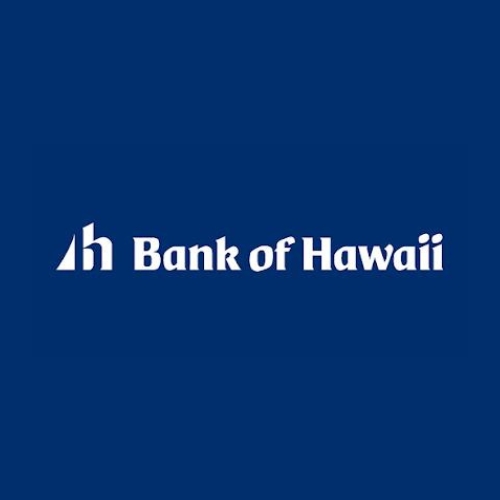
Best: Checking Accounts
One of Hawaii’s oldest banks, Bank of Hawaii is highly committed to serving its communities through volunteerism, sponsorships, and fundraising. Bank of Hawaii is also dedicated to helping local entrepreneurs build better businesses to fuel future generations.
Accounts
Bank of Hawaii offers business bank accounts, wealth management services, and several personal accounts, including checking accounts, savings accounts, CDs, loans, insurance, and credit cards.
It’s our top pick for checking accounts, with five checking options to choose from, including interest-bearing accounts. Bank of Hawaii’s basic checking accounts have low minimum opening deposits, and all of its checking accounts have waivable monthly fees.
Pros:
- Extensive branch access throughout the Hawaiian islands
- Full-service banking for consumers and businesses
- Hawaiian Miles rewards credit cards
Cons:
- Poorly rated app in the Google Play Store
- Minimum opening deposit requirements
Learn More:
2. CIT Bank 
Best: Online Bank
CIT Bank is the online banking division of First Citizens Bank, which has been around for centuries. The bank offers a large selection of products and easy access to your funds. First Citizens Bank is among the 15 largest banks in the US, with over 550 branches in 2023.
While CIT Bank doesn’t have branches, customers can access their funds via an ATM if they need to deposit or withdraw cash, or they can conduct all banking transactions electronically for free.
Accounts
CIT offers checking, savings, money markets, CDs, and mortgages. Its accounts stand out for offering low fees, competitive APYs that outpace traditional banks, and intuitive online and mobile banking features.
CIT is our top pick for savings accounts, offering three high-yield savings account options, including a Savings Connect Account that pays 10x the national average APY, with no monthly maintenance fees. You can also open an eChecking account with mobile deposits, no monthly fees, and Bill Pay.
Pros:
- Charges no monthly fees
- Highly competitive APYs on CDs
- Out-of-network ATM reimbursements
Cons:
- Mediocre Google Play Store ratings
- Opening deposit requirements
Learn More:
3. Central Pacific Bank 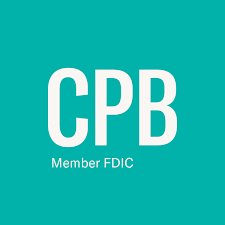
Best: Free Accounts
Central Pacific Bank was founded in 1954 to provide Japanese-American immigrants with access to financial products and services. While its mission may look different today, the bank still has the same values, helping communities, families, and small businesses with their financial needs.
Central Pacific Bank offers deposit products, mortgages, loans, credit cards, and a whole suite of business banking services. Its mobile app is highly rated in the App Store and Google Play Store and offers useful features like Zelle instant transfers, mobile deposits, and a customizable dashboard.
Accounts
Central Pacific Bank offers checking and savings accounts, loans and lines of credit, credit cards, and cash management services for businesses. On the personal side, it provides four checking accounts, five savings accounts, CDs, and IRAs, as well as cashback rewards cards.
It wins our vote for its free accounts. Outside of the paid Plus Package, CPB’s accounts have no monthly fees, which is rare among traditional banks. The bank also provides several ways to avoid overdraft fees, including linked savings accounts and lines of credit.
Pros:
- Some of the highest CD rates in Hawaii
- Large selection of savings products
- ATM reimbursements
Cons:
- High minimum deposit requirements
- Mixed customer reviews
Learn More:
4. Hawaii National Bank 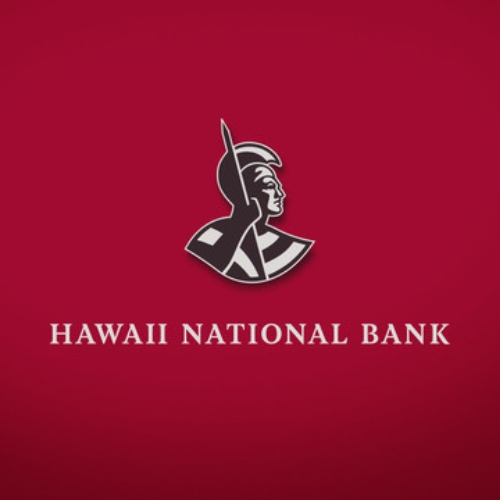
Best: Business Banking
Hawaii National Bank has been around since 1960, helping customers with their personal and business banking needs.
Today, the bank is locally owned and managed with 10 branches, and it’s adopted technology to provide customers with streamlined banking services on the go.
Accounts
Hawaii National Bank offers a Seed Checking Account for kids, a 55+ Account, and a handful of other personal checking accounts, with some free options. Individuals can also open a few different savings accounts, as well as CDs, loans, and credit cards.
Hawaii National Bank stands out most for its business bank accounts. Business owners can choose from several checking account options and access an interest-bearing savings account with waivable monthly fees.
There are also CDs, credit cards, business loans, commercial mortgages, cash management, and merchant services for businesses.
Pros:
- Extensive account options
- Kids checking accounts managed by parents
- Easy to waive monthly service fees
Cons:
- Fewer branches than some competitors
- Average checking/savings rates
Learn More:
5. First Hawaiian Bank 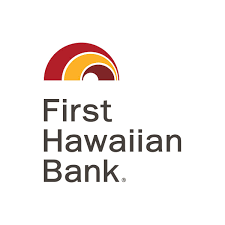
Best: Mobile Banking Experience
First Hawaiian Bank is the oldest and largest bank in Hawaii. It offers services for personal and business banking, including corporations. First Hawaiian bank originated in 1858 and has grown to offer many banking products, from deposit accounts to investment services.
Customers can handle all their banking needs at First Hawaiian Bank, including wealth management services. First Hawaiian Bank stands out for its mobile banking features, including Zelle transfers, facial recognition, Bill Pay, alerts, and a 360 view of all your financial accounts, including external ones, with budgeting insights tailored to your account.
Accounts
First Hawaiian Bank has a suite of business checking and savings accounts, lending options, credit cards, and investment and insurance products, including small business and commercial banking services.
It offers multiple checking and savings accounts, CDs, IRAs, credit cards, mortgages, and loans to individuals. In addition, each of its bank accounts includes benefits such as the ability to waive the monthly service fee or save money on a personal or home line of credit.
Pros:
- Low minimum balance requirements
- Large network of branches in HI
- Most fees are low or can be waived
Cons:
- Mixed customer reviews
- Mediocre interest rates
Learn More:
6. American Savings Bank 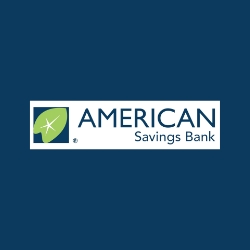
Best: Full-Service Bank
American Savings Bank is the third largest bank in Hawaii. While it wasn’t established until 1987, it has quickly grown to be one of the most popular banks in the state.
We recommend American Savings Bank if you’re looking for a full-service institution where you can access and manage all of your finances.
In addition to its wealth of deposit accounts, ASB offers credit cards, loans, mortgages, investment services, insurance products, financial and wealth advising, and a host of DIY financial resources like calculators, articles, and seminars.
Accounts
The bank offers several checking, savings, CDs, and money market accounts for individuals. It also has a large ATM network throughout Hawaii, and most deposit accounts have low minimum balance requirements. While all of its accounts have fees that can be hard to waive, they come with several benefits.
Business owners can also access several accounts and resources, such as checking and savings accounts, CDs, loans, lines of credit, and business credit cards.
Pros:
- Most deposit accounts include discounted loan rates
- Low minimum opening deposits
- Investment services
Cons:
- Subpar savings account rates
- High monthly fees on some accounts
Learn More:
7. Territorial Savings Bank 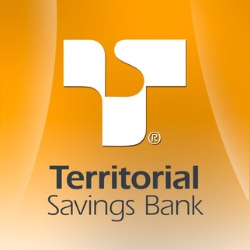
Best: Additional Perks
Territorial Savings Bank has been around since 1921 and has grown considerably throughout over the last century. Territorial Savings Bank is a full-service bank that services consumers and small businesses.
Territorial Savings Bank offers all the services you’d expect at a bank, plus some impressive added perks for account holders. TSB customers get exclusive rates at Hawaiian resorts such as the Hilton Garden Inn Waikiki Beach, discounts on car rentals, and free chips from Hawaiian Chip Company with qualifying purchases.
Accounts
Territorial Savings Bank has an interest-bearing checking account, a fee-free basic checking account, and a student checking account. It offers two traditional savings accounts, which both require an average daily balance to waive fees.
The bank also offers a Keiki account for kids between 5-17, a Christmas savings account, and CDs.
In terms of business products, you can open checking and savings accounts, CDs, loans, and business credit cards.
Pros:
- Specialized savings accounts
- High-interest rates on CDs
- Discounts and offers from local merchants
Cons:
- Mediocre checking and savings rates
- Minimum opening deposits required
Learn More:
Our Methodology
The BankBonus team has analyzed dozens of banks to provide our readers with thoroughly informed and accurate reviews. We evaluated digital financial platforms, online banks, regional banks, and national banks with a presence in Hawaii.
Our assessment of each bank factors in these considerations:
- Product lineup: We review the types of accounts, loans, and services offered by each bank, as well as the number of accounts.
- Fees and pricing: We also consider each institution’s fees, including monthly maintenance fees and other service charges.
- Account features: To compare banks, we take a close look at the features, limits, and capabilities each one has to offer.
- Interest: Along with these features, we consider whether or not the bank offers interest-bearing accounts and compare their rates to industry averages.
- Brand reputation: The bank accounts we recommend have been carefully vetted to ensure they are legitimate, secure, and backed by FDIC insurance.
- User experience: Additionally, we consider the ease of use and availability of resources on each bank’s website and factor in reviews of the mobile app from the Apple App Store and Google Play Store.
- Branch and ATM access: To gauge convenience, we also look at each bank’s branch and ATM availability and consider their ATM reimbursement policies.
- Customer service: In our review process, we also explore their customer service channels, hours of availability, and third-party reviews.
How to Choose the Best Bank
At BankBonus.com, we’re committed to providing consumers with the resources they need to select a bank or credit union.
Here’s an overview of the steps we recommend our readers take to choose a bank:
- Understand different types of banks: You have access to traditional banks, online banks, credit unions, and neobanks. It’s important to understand the differences between them and determine which type of institution aligns best with your preferences.
- Choose the right account: Checking, savings, money market, and certificate of deposit accounts are the most common types of bank accounts. Understand what each offers and choose a bank with the type of account(s) you need.
- Look for low-fee banks: Account fees can add up quickly. As you compare bank accounts, look for an account that doesn’t charge unavoidable monthly maintenance fees, overdraft fees, and ATM fees.
- Consider branch and ATM access: If having access to branches matters to you, choose a bank with physical locations. Regardless, you should prioritize banks that have a vast ATM network or reimburse ATM fees.
- Compare account features: Determine which features you’re looking for. A few common bank account features to consider are interest, cashback, mobile features, cash deposits, and minimum account balance requirements.
- Check out reviews and ratings: It’s crucial to pick a reputable bank. To get an idea of a bank’s customer experience, you can read expert reviews and look to sources like TrustPilot, the Better Business Bureau, and J.D. Power.
- Read the fine print: Don’t sign up for an account without understanding the terms and conditions. Make sure the account is FDIC or NCUA insured and get a sense of its requirements, fees, and expiration dates for bank bonuses.
- Look at the bank’s additional products: If you want to manage all of your finances under one roof, look into each bank’s additional products. A lot of banks also offer credit cards, wealth management, investment accounts, and loans.
Read our full guide to choosing a bank here.
Frequently Asked Questions
Finding the right bank in Hawaii can be a big job. You need a bank that offers the required services but at fees that don’t eat up your profits.
How many branches does each bank have in Hawaii?
- American Savings Bank: 55 branches
- CIT Bank: 0 branches
- Bank of Hawaii: 66 branches
- Central Pacific Bank: 30 branches
- First Hawaiian Bank: 51 branches
- Hawaii National Bank: 10 branches
- Territorial Savings Bank: 29 branches
Which is the biggest bank in Hawaii?
First Hawaiian Bank is the biggest bank in Hawaii, with 51 branches spread throughout the state and additional locations in Guam and Saipan. It’s also the oldest bank in the state of Hawaii, founded in 1858.
Why are there no major banks in Hawaii?
There are a handful of reasons big-name banks aren’t in Hawaii. Still, the most significant reasons are the cost of real estate, the small population, Hawaii’s distance from the continental US, and the competition from local banks that most Hawaiians have historically used.
What should I consider when picking a checking account in Hawaii?
When choosing a checking account, look at the minimum required balance, monthly fees, and services offered. Make sure you can meet the monthly minimum balance to waive the fees and keep more of your money.
Also, if you plan to keep a high balance in your checking account, look for accounts that pay interest. Once you’ve chosen a bank, check out our guide on how to open a checking account.





Comments are closed.
Comments are closed here.